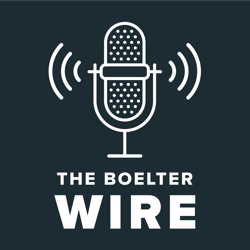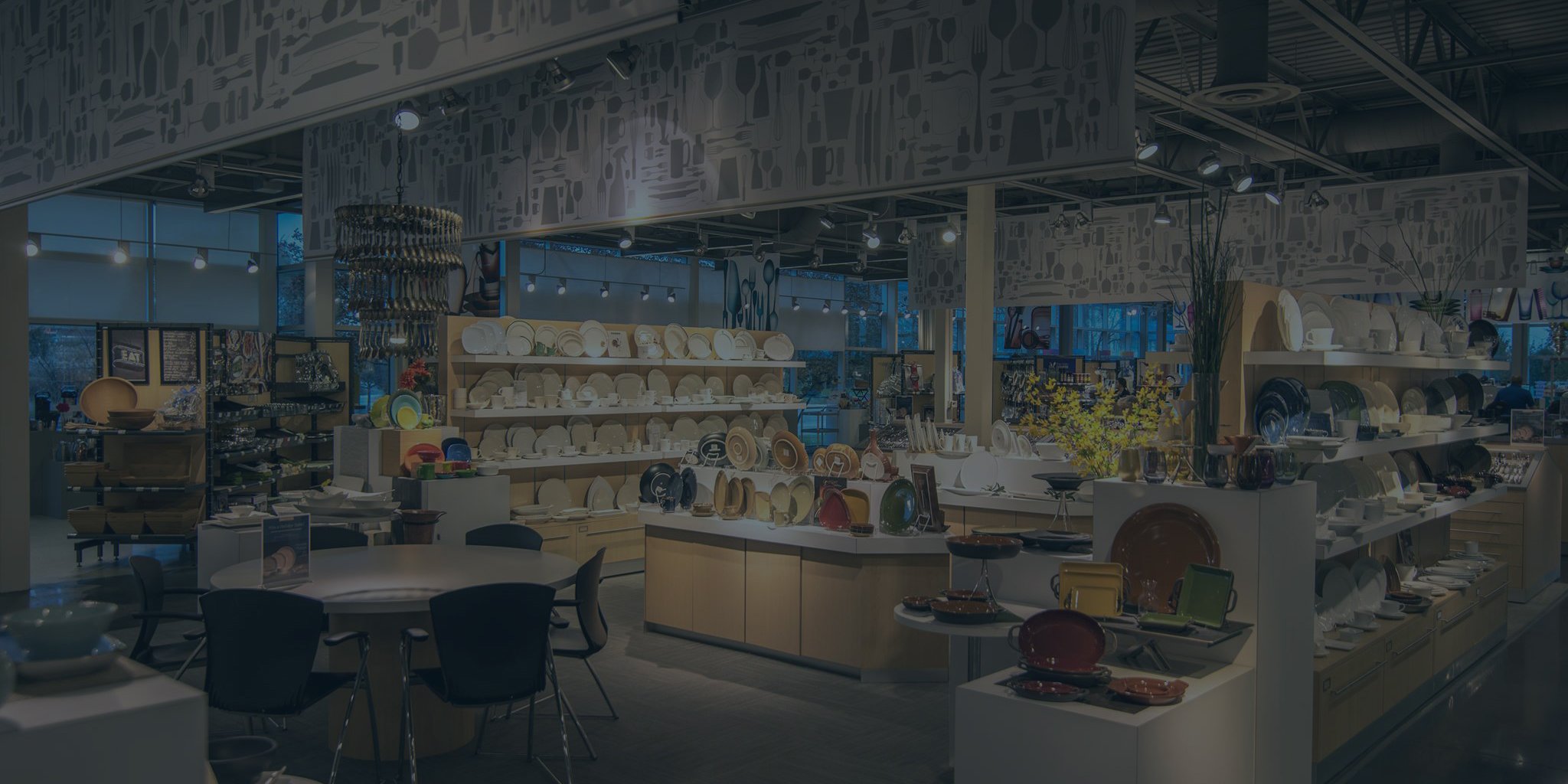Dan Holen and Rob Frost, Principals of Boelter Blue, talk through what it means for restaurants and bars to stay relevant in 2019. Rob and Dan discuss their experience in the restaurant industry and identify what’s worked, what hasn’t, what still works today and how the industry is changing as a whole.
Want to see what Boelter Blue can do for you? Book a demo now.
Excerpts
Dan: Rob and I go way back. We met at Texas Roadhouse. Rob and I both did pretty much everything there from washing dishes to working broil to working expo to serving, bartending, food, running, managing, marketing, training, everything in between. So we've had a lot of experience working in that corporate setting of a restaurant.
Rob: I think that's interesting you say "corporate," because they are, but the thing that we loved, it was a national that acted like a local. They took these time-honored principles of how to run a restaurant and apply them beautifully. What we want to talk about today is how they marketed the business. We were actually what they called LSMs at Texas Roadhouse. What do you remember about being a Local Store Marketer?
Dan: I remember thinking how cool it was that they allowed me, just a server at a restaurant, to help market the [business]. One thing that we were doing was the bread runs. If you've ever eaten at Roadhouse, you know the bread and the butter that you get at the table. We would put those in our car and we could drive to local businesses with coupons to get them to come back in. That worked really well. We talk about technology a lot, but something like that, a personal touch, walking in, handing them something – it goes a long way.
Rob: That was their version of marketing. They gave their employees ownership in the marketing process, put a face on the restaurant in the community. Texas Roadhouse just wasn't this faceless, nameless national chain. It was the kids from the local high school and college that were running out there and talking to people in the community. I thought that was neat. And that's something that restaurants can and should do today. Give ownership all the way down to servers, bartenders, things like that. Those kickback coupons that we used to hand out were just paper coupons, but imagine what we could have done if we had a mobile app.
A second takeaway: We saw those people come back in all the time with those coupons, so we had a plan as a company and as a staff. Every table you asked, "Is this your first time at Texas Roadhouse?" And you told the story and made sure that table got a manager touchpoint.
Texas Roadhouse has never done national advertising, never done TV advertising, never done radio. Maybe some things local in a few markets, but as a national franchise, they just don't do it because they don't have to. Those things were key, those stories.
Dan: Roadhouse would have [secret shoppers] come in and eat at our restaurant and grade the servers. Did they mention you were first time guests? Did they tell the story? And a server got graded at the end.
Rob: You did well, and you got some sort of prize.
Dan: They were looking at how clean it was, everything. Anybody could have been a secret shopper.
Rob: You kind of wanted to get secret shopped, because if you're doing a good job then…
Dan: You got praised, quite a bit.
Rob: That was the takeaway, how you treat your staff. It's not about punishing them with secret shoppers. It's about making the staff and the team feel good.
Dan: And what awesome way to get feedback. I think any restaurant or bar could really do that now. Just call up your friends and family. Tell your staff that it's going to be happening and then see what happens.
Rob: These are some fundamentals of good food and good service and treating your staff well and marketing your business. That really never changed.
Then before we started Anchor Five, which eventually became Boelter Blue, we worked at a deli in Milwaukee. It was launched in the 50s, right after World War II, and we served corn beef and pastrami. There was no point-of-sale systems, no website, no social media presence, no menus, no logo. We helped take that deli and move it forward. We made some mistakes in the process. We also did a lot of really great things with growing the business, the catering business especially, which didn't exist before. We did it through farmer's markets and festivals.
Dan: We would hit up the local farmer's markets. We'd sample out the food there, we'd hand out coupons, do a little bit old school marketing that we learned from Roadhouse and brought that back to the deli. In the midst of that, we put them into 21st century, I guess you could say, added the website and added the social media piece. We did email marketing for a little while there, too. We brought all that in to see what was going to work. They were a staple in the area. Everybody knew who they were, and they solely ran their business off of word of mouth.
Rob: I remember being really worried. We have this old school brand. There are people that have been coming there for 40 years, diehard Jake's fans. And here we're going to come and we're going to make a logo, we're going to make a website, we're going to use social media, we're going to use technology. Is this all going to work?
At the end of the day, people loved it. People weren't as resistant to change as you think. Here's this brand that's been iconic in the city of Milwaukee, and we were able to bring it forward. We look at restaurants today that have never done some of these things before, and now is the time. People are expecting it.
We helped this particular deli open up new locations around the city. We learned working with the management team there that we opened in two pretty poor locations. We opened up in two shopping malls. We thought the foot traffic from those shopping malls would result in great traffic to the deli. What we didn't anticipate is our customer wasn't trafficking shopping malls. Knowing our customer was a problem for sure. If you're going to be making an investment into your business, like a new location or even launching a new menu, make sure you know your customer and know your market.
 Dan: That was definitely the thing that we missed. Over time the entire focus was around making money, and we lost a lot of the tradition. Even though the food and service was still where it should be, it just didn't have that same feeling as it did. It's really hard to create an atmosphere in a shopping mall.
Dan: That was definitely the thing that we missed. Over time the entire focus was around making money, and we lost a lot of the tradition. Even though the food and service was still where it should be, it just didn't have that same feeling as it did. It's really hard to create an atmosphere in a shopping mall.
Rob: We didn't have a lot of patience with the things we were doing. Because we were so focused on making money and making the investments that we made pay off, we lost focus of our customer. We would come up with new promotions and ideas and events to drive the business, but we didn't give them time to succeed. We'd run something for two or three weeks, it didn't work, and then we'd run something else. We were confusing our customer, confusing the employees at the store. They didn't know what to think or what was coming next. People just tuned us out.
That's a really big lesson that we got from Jake's. If you're going to work on a new concept for your business, you're going to work on a new promotion, a new series of promotions, a new menu, a new strategy... You need to give it time.
Dan: It's a marathon, not a sprint, with restaurants and bars. You've got to give it, at least in my opinion, six months to really see if something sticks. It's very easy, because restaurants are so fast paced, to have that same mentality when it comes to marketing. You've got to be patient.
Rob: So, things that we've seen work today. We work with a local company that makes popcorn, Pop's Kettle Corn. They do an unbelievable job of getting involved in the community.
Dan: Looking at social media, he does a lot of video. People love video on social media. Mark, the owner at Pop's Kettle Corn in Muskego, just takes out a cell phone. It's very authentic. He holds it up in front of his face and he just talks. Sometimes the videos are two minutes, sometimes they're five minutes. Sometimes I see one for 15 minutes. If he has a lot to say, he'll say it, but it's very authentic. It puts a face to the brand, and it makes people feel like they actually know the family. You have an emotional connection to the brand before you even step foot in there.
Rob: I know he's local and focuses on local marketing, but I feel like he's hyper-local.
Dan: Without a doubt. For those of you who don't know: hyper-local is focusing primarily on exactly where you're located. He's in Muskego, so he'll do a lot of promotions for just the city of Muskego. A family in Muskego had a daughter who got diagnosed with cancer. He raised a bunch of money and he shaved his head on Facebook Live.
Rob: I know Mark and I know he didn't do that to get people to buy kettle corn. The reason he did that is because he cares about his community. When we're talking about being involved in your community, it has to be because you really want to be involved in your community. That's the only way it works.
Dan: Exactly. Find a niche if you're passionate about, and then use your resources and use your name and use your brand to help. And that will come back to you.
Rob: He does a series of videos, and he's had some crazy success with these. I don't want to say the word "viral," but they've really gotten a lot of attention online.
Dan: He met with businesses around the area, went in and let them talk about their business. Nothing to do with his kettle corn business, just wanting to learn about and promote their business, what they were good at. Once, this pizza joint in Waterford, Wisconsin, had over 120 shares, 457 likes on the video.
Rob: How much money did he spend to promote?
Dan: Zero dollars. Nothing. People in the community knew Mark from Pop's. They knew Mike from Spanky's. He just allowed him to showcase his pizza and showcase his brand. People love these two business owners in the area that are just helping each other out, and they wanted to help out as well. And Mike gave away a free beer to anybody who mentioned the video.
It took 20 minutes of Mark's time to go in there and shoot this and film it and get it up online, but it helped his business. It helped the pizza joint. It helped everybody.
Rob: We've talked about things in the past and things that are working now, but I want to talk about two things. The first is a trend that you as people who work in the restaurant industry hear all the time, and that's delivery. I need to be delivering food to people. And if I'm not, I'm losing customers. I'm losing business. That might entirely be true depending upon the type of business you're in and where you're located.
I just came across an article the other day about the largest franchisee in the Applebee's system. I believe they have over 200 units, maybe even more. They've decided they're going to cancel doing delivery, because it's not profitable enough. It disrupts operations inside the restaurant too much, and they're going to focus on their dine-in and carside-to-go business. That's a really interesting thing, because what we've seen in the industry is you need to be doing delivery and if you're not, you're going to get left in the dust. Here we're seeing one of the biggest players in the restaurant industry saying, "Hey, this isn't something I want to do."
 Dan: I think people get lost in what everybody else is doing. That can be a double-edged sword. Let's say your stuff just doesn't carry well in delivery, and then someone gets your food and it's just not that good. You're better off not even delivering that food altogether. It takes some time really thinking, "Yes, people are doing this, but should I be doing that?" And it's okay to say no and go against the norm.
Dan: I think people get lost in what everybody else is doing. That can be a double-edged sword. Let's say your stuff just doesn't carry well in delivery, and then someone gets your food and it's just not that good. You're better off not even delivering that food altogether. It takes some time really thinking, "Yes, people are doing this, but should I be doing that?" And it's okay to say no and go against the norm.
Some of the things that people are seeing, too, is online ordering. It can be expensive depending on who you go with. Should you do online ordering? Is that part of your brand experience? If it is, then try it out. If it's not, it's okay not to get people to come in.
Rob: The last thing is – and this is honestly one of the most important things – everybody carries a little computer around in their pocket. That little computer is their portal to the entire world. When you stop and think about that, how can you not have a presence there?
If they look you up on Google, do they go to a mobile friendly website? Do I have someplace for them to access things and communicate and interact with your restaurant, not only as a first-time guest, but a repeat guest? If you're not thinking about being a part of your customer's cell phone, you might be dropping the ball.
Dan: If they pull up that little computer in their pocket and they can't find you, they can find plenty of other restaurants out there around them that are right there on their phone, and they're going to go there first. A lot of places we talk to haven't claimed their business on Google. If you have not claimed your business, that's number one. Social media, number two. Can they [find you] in 2-3 clicks? If not, then you're not there, and you need to get there.
Rob: You need to have those basics covered. We come across so many places that don't. If you need some help, we're definitely here to help.
Ready to grow your food or beverage business? Get started with Boelter Blue today.

The Boelter Wire is an episodic podcast that focuses on thought-leadership conversations with industry experts and established partners, and is designed to help listeners evolve their business, stay competitive and pursue their passions.
Subscribe to The Boelter Wire here or on Spotify, Google Play, Apple Podcasts or Amazon Music.
.jpg?width=192&name=BLT_Only_Logo_Black%20(19).jpg)



